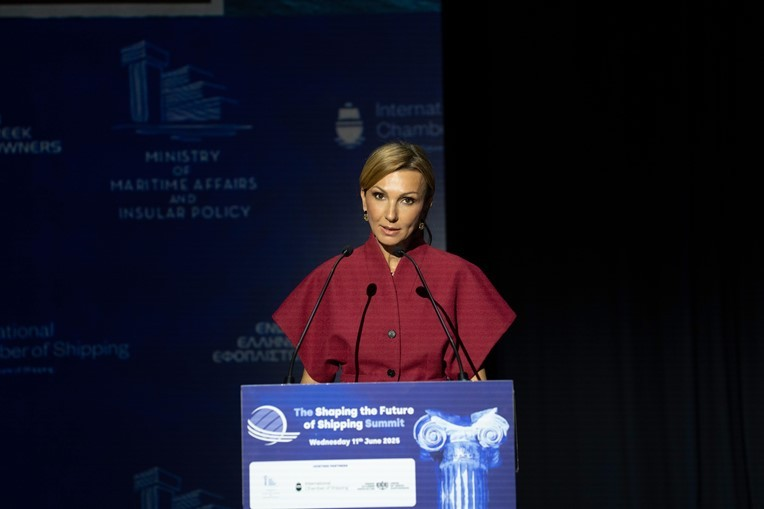
Over 350 senior delegates from governments and industry convened to address the global risks to shipping and trade at the Shaping the Future of Shipping Summit that took place on June 11 in Athens, Greece.
The Summit, which was co-hosted by the Ministry of Maritime Affairs and Insular Policy of the Hellenic Republic, the International Chamber of Shipping (ICS) and the Union of Greek Shipowners (UGS), highlighted the need for regulatory cohesion, seafarer training and secure trade routes amid the geopolitical uncertainty.
“This sector faces multiple challenges that we need to address both collectively and individually: An energy transition, with unrealistic set goals, increased regionalism, which threatens the very foundation of an efficient international regulatory regime, fierce international competition, which challenges sustainability and maritime security issues, which put life at sea under direct threat,” Melina Travlos, president of the Union of Greek Shipowners said during her speech.
Melina Travlos highlighted that the decisions taken at the IMO should be more than a mere balancing act among the interests of its Member States: “They should be rooted in a real understanding of how the industry truly operates. What is feasible and what is not.

Photo credit: Union of Greek Shipowners (UGS) / Image: Melina Travlos, President of the Union of Greek Shipowners
“Let us not forget: the IMO regulates only ships. It cannot directly regulate the other stakeholders, whose contribution to decarbonization is, however, a sine qua non. Without safe, scalable, and globally available alternative fuels, decarbonization will remain a theoretical goal.”
The Summit brought together over 350 senior delegates from more than 30 countries, including ministerial representatives and chief executives from the global maritime and energy sectors.
Discussions addressed the complex and evolving geopolitical landscape, regulatory developments, and the critical need for enhanced seafarer training and recruitment to safeguard the future of global trade.
Furthermore, the summit fostered a high-level exchange of views between policymakers and industry leaders.
Participants examined the immediate and long-term risks facing the global shipping sector, including the economic impact of regional instability, the implications of climate policy divergence, and the need for unified regulatory approaches that support both decarbonisation and trade efficiency.
A strong consensus emerged around the urgent need to maintain open markets and ensure the interoperability of global shipping regulations to protect supply chain resilience and economic security.
Discussions further explored the regulatory framework surrounding greenhouse gas emissions, with a focus on implementation of the International Maritime Organization’s (IMO) GHG strategy, developments from the recent MEPC83 meeting, and pathways towards equitable carbon pricing.


